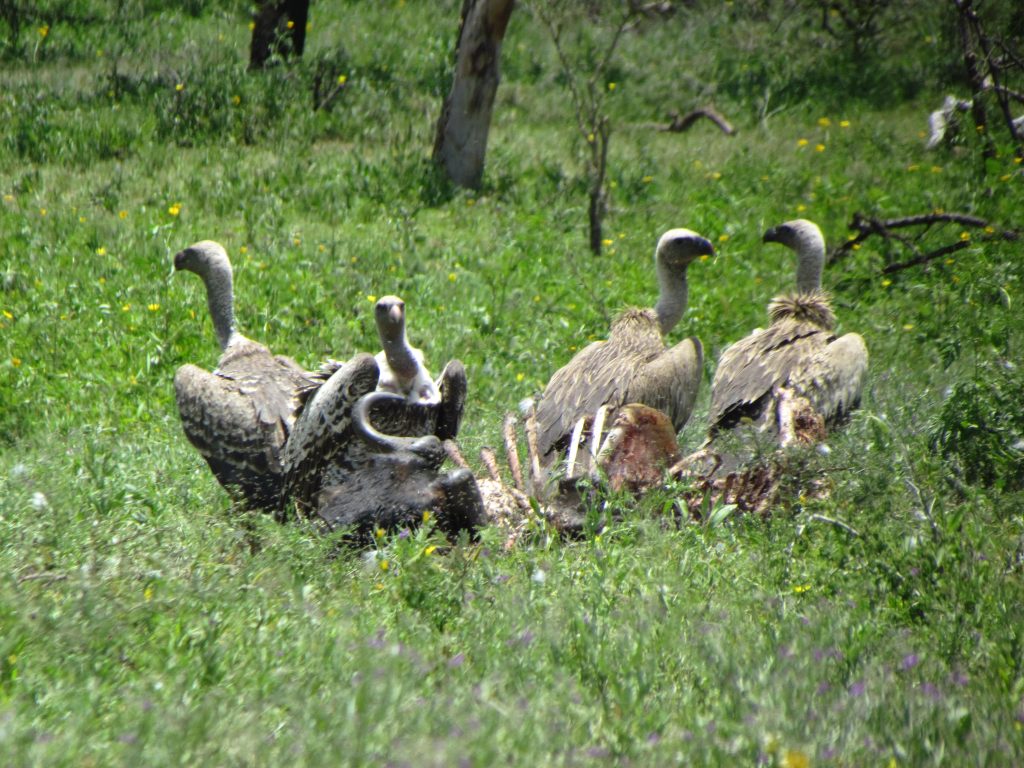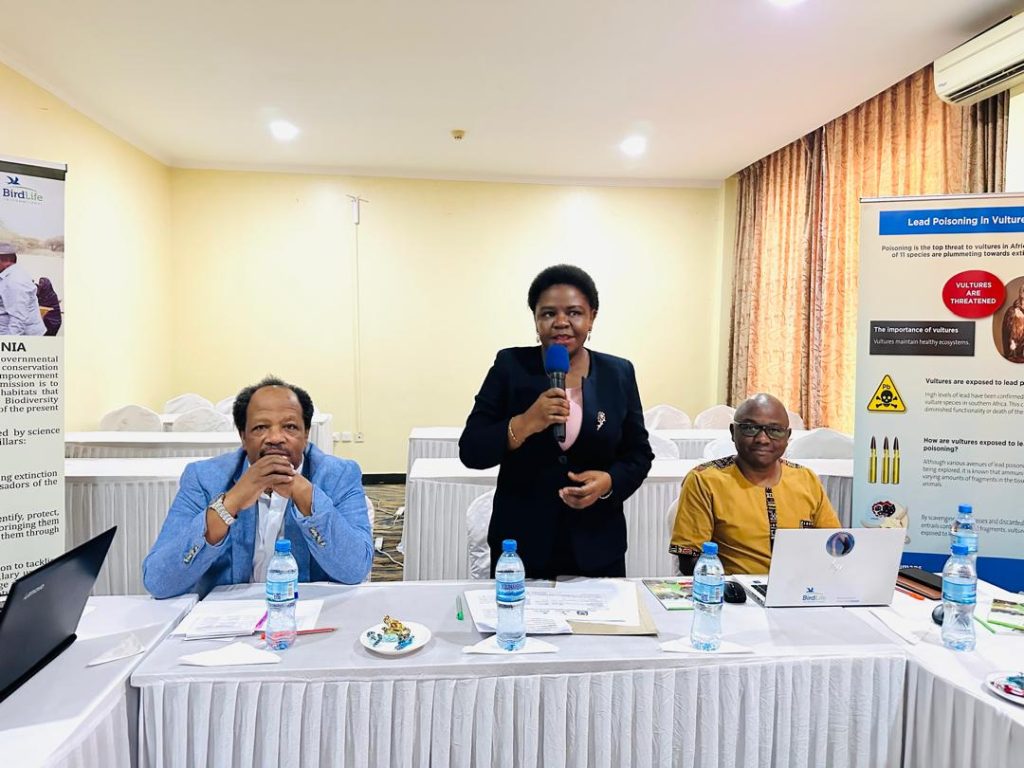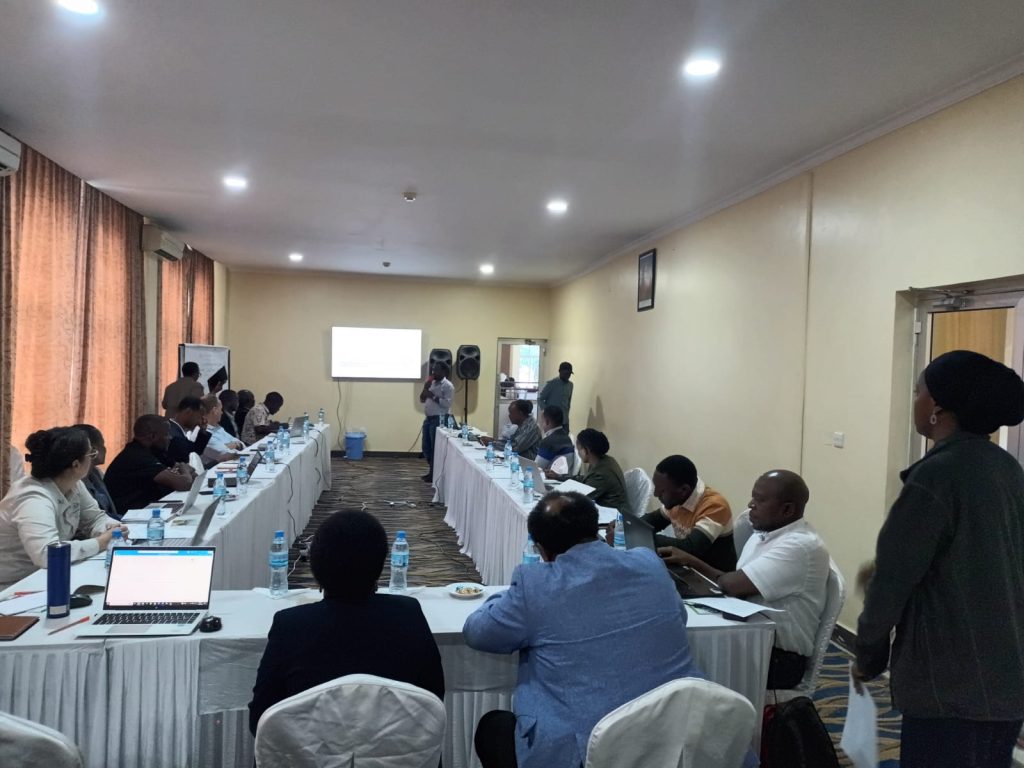Tanzania scales up vulture conservation efforts

Tanzania is home to eight vulture species of which six are classified as Critically Endangered (CR) or Endangered (EN) on the IUCN Red List
In recent years, vulture populations across Africa have faced steep declines, driven by poisoning, belief-based use, electrocution and collision with energy infrastructure and habitat loss among other factors. In East Africa, poisoning remains a major driver of vulture populations declines. Tanzania is home to eight vulture species of which six are classified as Critically Endangered (CR) or Endangered (EN) in the IUCN Red List including the White-backed Vulture (Gyps africanus), Ruppell’s Vulture (Gyps rueppelli), Lappet-faced Vulture (Trogos tracheliotos), White-headed Vulture (Trigonoceps occipitalis) Egyptian Vulture (Neophron percnopterus) and the Hooded Vulture (Necrosyrtes monachus).
Despite their ecological significance, vulture populations in Tanzania have undergone a precipitous decline in recent years as a result of intentional or unintentional poisoning.
Given the gravity of the situation, Nature Tanzania began to address threats faced by vultures in the country’s Makao Wildlife Management Area (MWA) through a project funded by the Darwin Initiative through BirdLife International in 2022. As part of conservation efforts, Nature Tanzania has established collaborations with traditional healers to address the threat of belief-based killings of vultures which is also a driver of wildlife poisoning incidences.
To scale up vulture conservation in the country conservation stakeholders met in Arusha from 17th– 18th April 2024 discuss the poisoning of vultures and other wildlife from lead (Pb) ammunition and other sources. The forum was collaboratively organized by the Ministry of Natural Resources and Tourism and Nature Tanzania brought together stakeholders from government agencies, civil society organizations and universities.
While opening the workshop, Dr Fortunata Msoffe, the Acting Director of Wildlife in the Ministry of Natural Resources and Tourism noted that Tanzania had developed a Vulture Action Plan to address the issues that vultures face.
“Lead bioaccumulation in animals poses a growing threat in Tanzania and we need to collaboratively lay a concrete foundation for action. I hope that we can come up with a way forward for fighting this menace. I urge that all our actions for combating lead in vultures and wildlife species are backed up with scientific facts”, she added.

Emmanuel Mgimwa, the Executive Director of Nature Tanzania noted that the Vulture Action Plan for Tanzania was a game changer for vulture conservation in Tanzania. He emphasized the need for nationwide cooperation and collaboration by building partnerships between government authorities, NGOs, researchers, local communities, and other stakeholders to tackling threats facing vultures.
“The workshop is instrumental in raising awareness of the effects of lead on vultures and other wildlife species in addition to contributing to the development of a regional vulture conservation strategy as well as strategies to address lead poisoning in other wildlife species,” he added.
During the workshop, the detrimental impacts on vultures which have fed on carrion shot with lead ammunition were highlighted. Recent studies show that lead impedes the creation of hemoglobin in vultures. Lead found in mining areas seriously affects human health including the cognitive growth of children, and hence the need to adopt a One Health approach. One Health is unified approach that seeks to find solutions for people, animals and the environment.

As part of wider efforts to combat wildlife poisoning, Nature Tanzania is also involved in efforts to establish the East African Wildlife Poisoning Response Network (EAWPRN), a collaborative effort on addressing the threat of wildlife poisoning in East Africa.
“Tanzania has taken a definitive step towards addressing the vulture challenge. The combination of the Tanzania national Vulture Action Plan and collaborative stakeholder action will accelerate efforts to finding solutions to lead poising in vultures and other wildlife”, concluded Vincent Onyango, Senior Vulture Conservation Officer for Eastern Africa at BirdLife International
Header photo: Vultures feeding on a wildebeest carcass in Makao Wildlife Management Area , north-central Tanzania © Nature Tanzania

“The workshop is instrumental in raising awareness of the effects of lead on vultures and other wildlife species in addition to contributing to the development of a regional vulture conservation strategy.”
Emmanuel Mgimwa, Nature Tanzania’s Executive Director